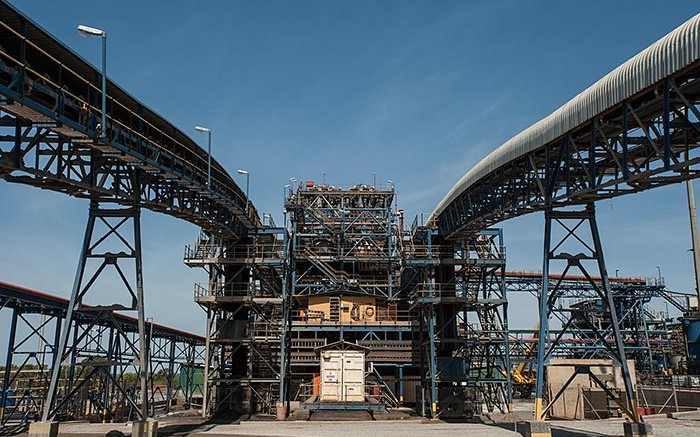Randgold Resources (NASDAQ: GOLD) is stepping up its exploration in Côte d’Ivoire.
President and CEO Mark Bristow recently praised the country’s new mining code and announced that Randgold’s geologists are taking a fresh look at the Nielle permit, which hosts the company’s Tongon gold mine in northern Côte d’Ivoire, 55 km south of the border with Mali. (Tongon produced 227,103 oz. gold in 2014, and the company expects it will produce 260,000 oz. gold this year.)
The most exciting targets are on the company’s Boundiali permit, including Fonondara and a series of others that cover a 60 km strike length at the western margin of the Boundiali belt, which Randgold’s geologists believe is an extension of the Syama belt in Mali.
Randgold has started a first-phase drill program at Fonondara, where six trenches over a 1.5 km strike length have exposed a system that averages 16 metres grading 2.96 grams gold per tonne.
Drill results beneath the trenches have returned 16.5 metres averaging 3.38 grams gold including 7.4 metres of 5.88 grams gold from the main zone, and 8.8 metres of 28.62 grams gold, including 4.1 metres of 61.05 grams gold in the footwall.
The company has also identified a bulk-mining target on its Mankono permit, where trenches are grading up to 1.8 grams gold over 100 metres. South of the Nielle permit on the Fapoha permit, three contiguous targets have returned sampling grades of up to 8 grams gold over a 13 km strike length.
Randgold has also beefed up its generative team with the addition this month of Michael Skead, who has 25 years of experience in exploration and project evaluation, particularly in the east and central Africa regions, including the DRC, where he served as vice-president of exploration for Banro (TSX: BAA; NYSE-MKT: BAA) from 2000 until 2007.
In the three months ended March 31, Randgold increased its profit from mining by 5% to US$143.9 million, despite slightly reduced gold production of 279,531 oz., mainly due to planned lower grades. Profit for the quarter of US$51.3 million, down from US$54.4 million in the fourth quarter of 2014, was impacted by higher exploration expenses and corporate costs, as well as adverse exchange rate movements during the period. Despite the production decrease in the first quarter, total cash costs per ounce came in at US$708 per oz.
Net cash generated by operations increased from US$69.3 million to US$101.7 million, and the cash flow, combined with lower capital expenses after the first phase of construction at Kibali in the Democratic Republic of the Congo, boosted cash-on-hand by 71% to US$141.2 million.
At press time Randgold shares traded at US$58.31 apiece.
Andrew Breichmanas of BMO Capital Markets in London has a US$100-per-share target price on the stock.
“Randgold retains an enviable position among gold producers, with high-quality assets capable of generating cash at significantly lower prices, capital expenditures moderating following a growth phase and a balance sheet free of debt,” he commented in a research note to clients.
“The company appears capable of capitalizing on the challenges faced by many of its peers, but the impressive exploration results suggest that management can exercise patience, while waiting for opportunities that surpass the high bar set by organic growth prospects to emerge.”


Be the first to comment on "Randgold beefs up exploration in Cte d’Ivoire"